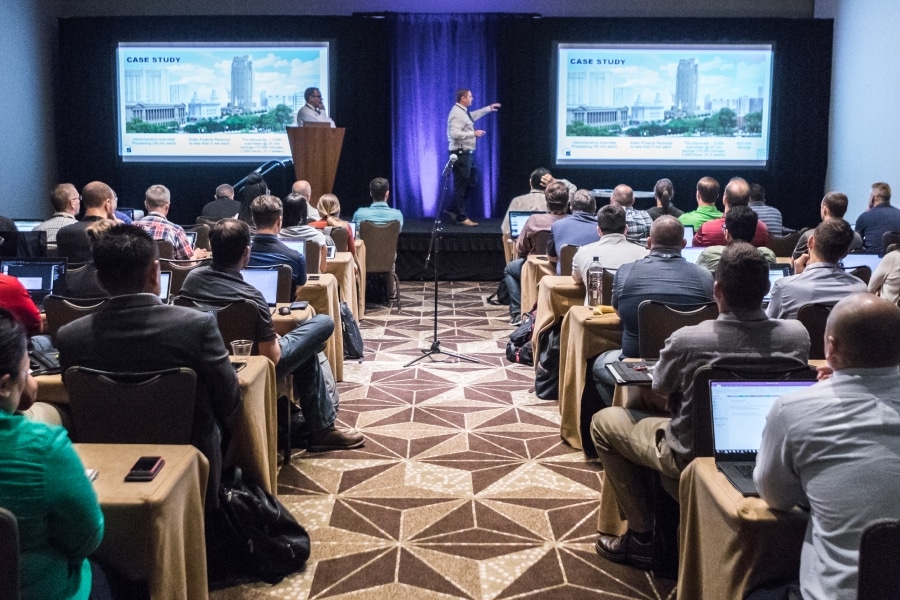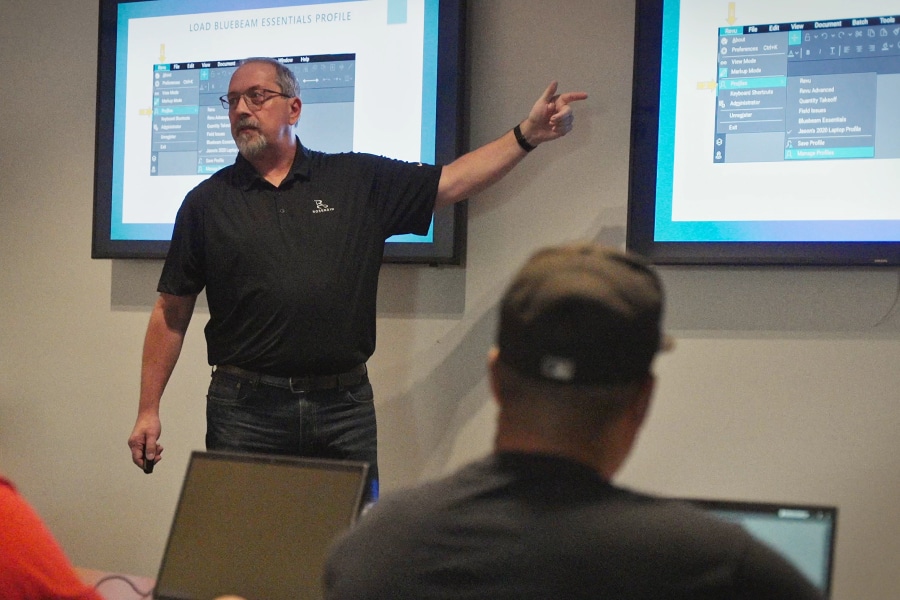Briefly:
- Coworking giant WeWork acquires construction management tech startup Fieldlens
- Fieldlens aims to create order out of construction chaos
- WeWork currently operates over 10 million square feet of office space
- Collaboration is key to this partnership, closing the feedback loop
- Both companies leverage massive amounts of data to increase efficiency in building and office utility
It’s All About Big Data
The market leader in shared and coworking office space, WeWork, which is now adding office space at a mind-blowing rate of half a million square feet per month, recently acquired a small construction management software startup called Fieldlens. What’s the connection between these two companies? As WeWork’s Head of Construction Tim Dumatrait and Fieldlens founder Doug Chambers announced at the annual Bluebeam eXtreme Conference, the answer is all about data.

WeWork is setting the standard for shared office space, with over 150 locations across the globe and a total of 10 million square feet of leased office space. That’s an astonishing fact considering the company was founded in 2010. Fieldlens, a six-year-old venture, created a digital platform to rein in the chaos of the construction site so that builders, owners, foremen and supervisors all have access, in real time, to the pressing issues of the day. RFIs, work orders and status updates all become trackable issues so that people can spend their time building, instead of managing problems. A history is then created, so users of Fieldlens can apply knowledge from one jobsite to the next. This, it turns out, is quite important for WeWork’s purposes, which is constantly building out space that is both customizable and draws upon both companies’ vast experience in solving workplace efficiency issues for a new generation of office users.
“We see this as the central problem facing the AECO [Architecture, Engineering, Construction and Owner-Operated] industry today. By integrating the Fieldlens software into WeWork’s space management technology, WeWork can elevate and scale these innovative solutions, while also benefitting from the specialized expertise that the Fieldlens team brings,” says Dumatrait, who comes from a residential construction and architecture background. “Together with Fieldlens, WeWork is challenging the way the industry has traditionally built and managed physical spaces and will continue to improve this process with industry-leading proprietary space management technology and workflow management tools.”
Taming the Chaos in Construction Together

Chambers, who started Fieldlens because he saw firsthand from working on construction sites that the industry needed a better way to collaborate between various interested parties, believes that only through a closer relationship with actual owners will his solution achieve its full potential.
“What we realized in our relationship with WeWork is that we were set up to solve communication breakdowns, but tech alone can’t do it. WeWork came to us and said as an owner, and frankly as one of the fastest growing owners in the world, we want to help solve these issues because it benefits us in a huge way to build faster and more efficiently. And what WeWork sees is the need to create more collaborative processes, more collaborative relationships in the industry overall.”
With Fieldlens now operating inside of WeWork’s Manhattan headquarters, they can tighten the turnaround time and crunch a wide range of data to see what problems arise most commonly in construction, fix those issues, and also achieve maximum efficiency.
A $20 Billion Company
WeWork is now valued at $20 billion, and Bloomberg News categorizes the company as a tech startup rather than a construction startup. When Dumatrait reveals that they model all their office spaces in 3D, perform daylight analysis and compile precise conference room usage statistics, and use machine learning to find the perfect corridor width, it’s easy to see how this is, indeed, a tech company. And all of this data trickles down to the contractors who are building out the space that WeWork leases around the globe.
“We want to be the most progressive owner organization in the world when it comes to the use of technology to enhance member experience, and that extends to our partners in the delivery process. We want a more collaborative approach to help our trade partners avoid the inefficiencies of the status quo,” says Dumatrait.
As Chambers will attest, there is no shortage of inefficiencies to address in the building process. Fieldlens, on its own, has been attempting to make builders smarter and allow them to do their jobs better. Now that Fieldlens is a part of WeWork, they believe the ceiling for improvement has been raised even higher.
Photographs of WeWork headquarters courtesy of WeWork.











